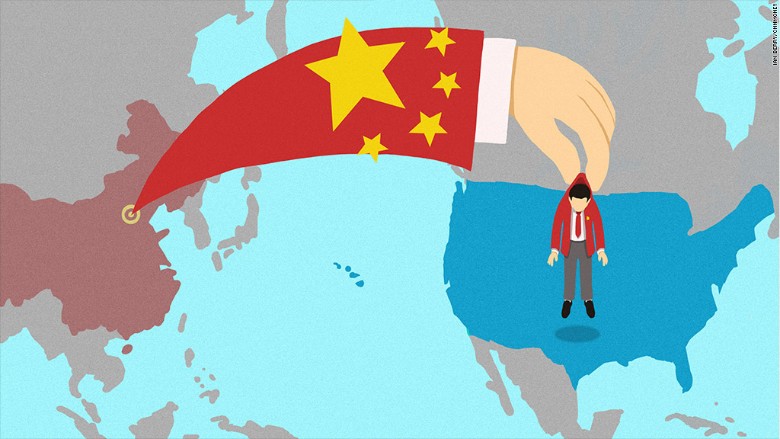
China's sweeping anti-corruption crackdown has reached the other side of the globe.
Beijing believes at least 150 corrupt Chinese officials have fled to America, according to state media, and has sent U.S. authorities a list of the "priority cases" it is targeting.
Since coming to power, Chinese President Xi Jinping has launched a massive anti-corruption campaign that has netted hordes of government officials and company executives. Critics say Xi is simply cleaning house and removing opponents, but the crackdown has continued to widen.
A new effort launched last year -- dubbed "Operation Foxhunt" -- is targeting rich Chinese suspected of economic crimes who have fled abroad. China is trying to recover their illicit assets.
The U.S. State Department confirmed Wednesday that China has sent lists of suspects to the U.S. China has also agreed to hand over more evidence on priority cases to help U.S. officials track them down, then prosecute or deport them.
"We continue to encourage China to provide strong evidence and intelligence to ensure that our law enforcement agencies can properly investigate and prosecute cases related to the alleged corruption," U.S. State Department spokeswoman Jen Psaki said on Wednesday.
Neither Beijing nor Washington have given details about the list of targets, though at least one Chinese citizen has already been arrested in the U.S. with China's help, according to the Department of Justice.
Related: Chinese snap up fine art for use in laundering schemes
Last week, Shilan Zhao, the ex-wife of a former Chinese official, was arrested in Washington state, on charges of immigration fraud and money laundering, the U.S. Department of Justice said in a statement.
Zhao and her ex-husband, Jianjun Qiao, were charged with fraudulently obtaining visas through a popular immigrant investor program known as EB-5.
The Department of Justice also claims that the couple bought property in the U.S. with money laundered through a massive grain storage facility in China, where Qiao served as director for 13 years. Qiao remains at large, and is still being sought by U.S. authorities, according to the DOJ.
While the U.S. doesn't have an extradition treaty with China, the State Department said it can still return fugitives to China. "We must be satisfied that an individual extradited from the United States to another country would receive a fair trial and not be subject to torture or other forms of mistreatment in that country," Psaki said.
Since last October, the Chinese government has brought back 49 individuals suspected of economic crimes from 17 countries, according to state media.
Read next: U.S. runs out of investor visas as Chinese overwhelm program
